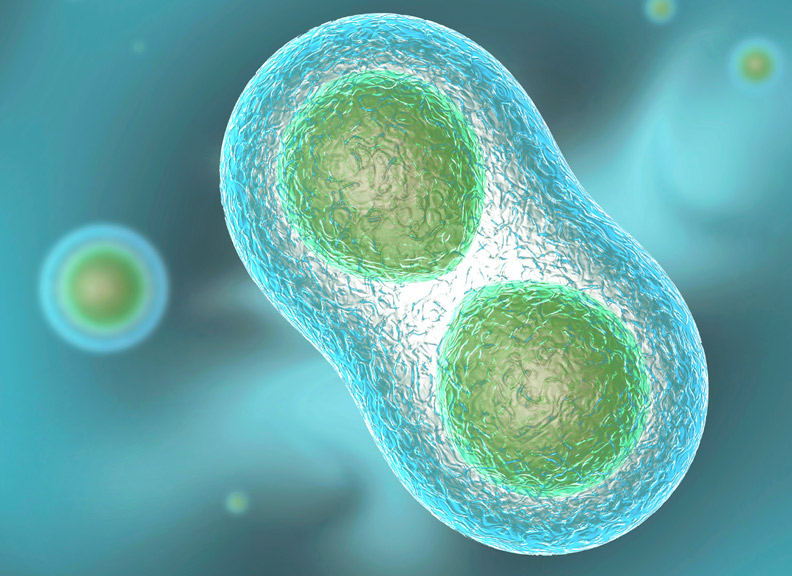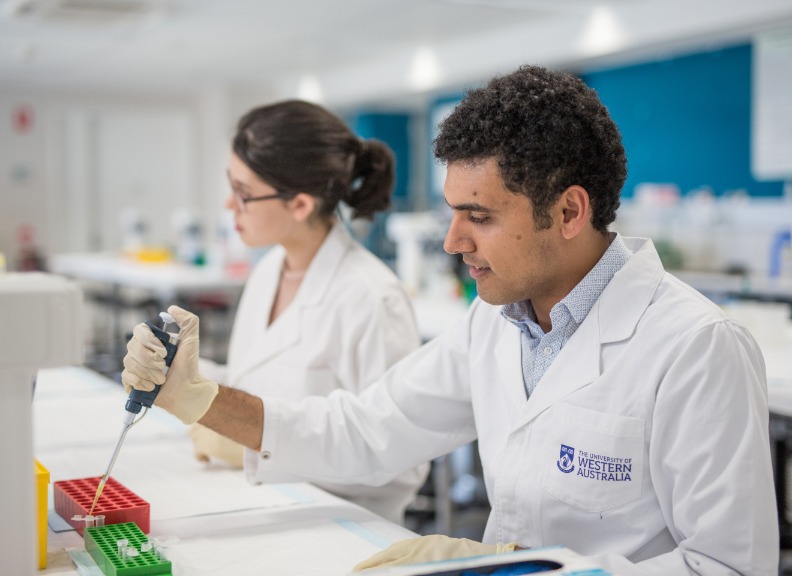Discipline
Human genetics
Understanding complex human diseases
The burden of common human diseases presents one of the greatest global health challenges in human medicine today.
These diseases include cancers, obesity and obesity-related diseases including type 2 diabetes and cardiovascular disease, asthma and respiratory disorders, schizophrenia and other neuropsychiatric disorders, preeclampsia and other pregnancy disorders.
Genetics, epigenetics and the environment are all recognised as playing a major role in these diseases. In human genetics research at UWA, much effort is focused on identifying the genetic and epigenetic variations that predispose an individual to risk of these common complex diseases.
Our research involves project-orientated multidisciplinary teams of specialist clinicians, epidemiologists, statistical and molecular geneticists, and computational biologists. Working together, we collaborate widely to make discoveries that will be important for the development of new and improved diagnostic tools and risk models to better identify those individuals at greatest risk of disease.
Our goal is ultimately to inform better health care provision for achieving improved health outcomes as part of the growing worldwide focus on genomics and precision medicine.
For further information on human genetics, contact [email protected].
Interested in collaborating with us?
Our team collaborates widely with researchers from across UWA, other universities and research institutes nationally and internationally. To get involved, contact us at [email protected].
Centre for Genetic Origins of Health and Disease
The Centre for Genetic Origins of Health and Disease (GOHaD) is a collaborative research centre supported by UWA, Curtin University and the Royal Perth Hospital Medical Research Foundation. It brings together researchers from these organisations who collaborate to explore genetic, epigenetic and environmental risk factors for common disease.

Current projects
- Cardiovascular disease and the Busselton Family Heart Study
-
The flagship Busselton Family Heart Study aims to identify rare genetic variant risk factors for cardiovascular disease (CVD) by studying clinical and biochemical data (including the lipidome) from large, densely affected families in combination with whole genome sequencing.
The project aims to identify specific heritable genetic differences between individuals that put us at greater risk of cardiovascular disease. The identification of causal genetic risk variants may help in early identification of at-risk individuals, and facilitate the development of new strategies to treat and prevent CVD.
Contact research team leader Professor Eric Moses.
- Mammographic density as a risk factor for breast cancer
-
Mammographic density (a measure of denser tissue types in the breast, which appear as the white area in a mammogram) is highly heritable and is one of the strongest predictors of breast cancer risk, second only to carrying a mutation in the BRCA1 or BRCA2 genes.
Dr Jennifer Stone leads a number of mammographic density projects at UWA, including an investigation of mammographic density in Australian Aboriginal women, and a pilot study into breast density among young women which uses a new scanning device called Transillumination Breast Spectroscopy (TiBS) instead of mammograms.
Contact research team leader Dr Jennifer Stone.
- Schizophrenia under the genomic lens
-
In collaboration with the UWA Centre for Clinical Research in Neuropsychiatry, we are conducting a major genome-wide study of individuals and families from the long-running Western Australian Family Study of Schizophrenia (WAFSS) to identify genetic risk variants for schizophrenia.
Contact:Professor Assen Jablensky (CCRN)
- Stratified screening for cancer
-
Stratified screening for cancer is a radical new population approach to cancer prevention, which has the potential to transform healthcare through earlier diagnosis and more effective prevention.
In collaboration with researchers from the UWA School of Population and Global Health and Curtin University, we aim to collate epidemiological data on genomic and lifestyle risk factors to identify individuals at higher risk of cancer who will benefit from early detection and earlier interventions.
Contact research team leader Professor Eric Moses for more information.
- Preeclampsia
-
Preeclampsia is a major cause of maternal and fetal morbidity and mortality, with approximately five percent of all pregnancies affected.
Our earlier research has provided compelling empirical evidence of shared genetic risk for preeclampsia and cardiovascular disease. We are continuing to explore genetic data to identify risk factors for preeclampsia and cardiovascular disease, which will provide insight into the cause of these disorders and may lead to new treatments and tests to predict those women at highest risk.
- Sleep disorders
-
In collaboration with researchers from the UWA Centre for Sleep Science, our research aims to identify genetic risk variants associated with sleep disorders. We will use parent and offspring data (genetic analysis and laboratory-based sleep studies) from the long-running Western Australian Pregnancy Cohort (Raine) Study.
Contact:
- Ectopic fat and cardiovascular disease
-
Obesity in childhood predicts adult cardiovascular disease. Differences in the distribution of body fat, particularly fat around organs, may explain some of the risk associated with development of cardiovascular disease.
In collaboration with researchers from the UWA Medical School, research is underway to examine the effects of genetic, pregnancy and childhood factors on different body fats and cardiovascular risk in young adult participants in the Western Australian Pregnancy Cohort (Raine) Study.
Contact:
Professor Eric Moses
Professor Trevor Mori (School of Medicine) - Cancer risk factors
-
We are investigating genetic and environmental factors that contribute to an individual’s risk of developing various types of cancer, including:
Melanoma
Mesothelioma
Sarcoma
Related facilities
- Western Australian DNA Bank
- The Western Australian DNA Bank is a national processing and long-term secure storage facility for biospecimens (including DNA, RNA, serum and plasma) that have been collected from donors who have participated voluntarily in one or more medical research projects. It is an important tool for current and future large population-based studies in WA.
- High performance computing
- Supercomputer facilities and the expertise to utilise these are available to human genetics researchers at UWA. As well as access to the Pawsey Centre, a high performance, supercomputer cluster of which UWA is a collaborative partner, the Centre for Genetic Origins of Health and Disease owns three supercomputers and two large-scale storage servers, providing Centre staff with access to 144 processors and 300TB of available storage space for genomic data.
- The Ark
- The Ark is a secure, highly configurable web-based research tool that incorporates the majority of the functionality required to conduct a complex study or clinical trial, or operate a research registry. The Centre for Genetic Origins of Health and Disease hosts one of only three self-managed instances of The Ark in Australia, and has supported approximately 100 users from 40 medical research studies to utilise the open-source online medical research web application to manage more than 70,000 subjects/patients data, including 141,000 bio-specimens.






